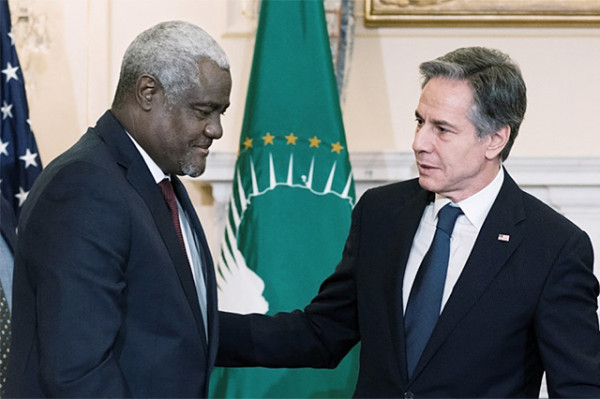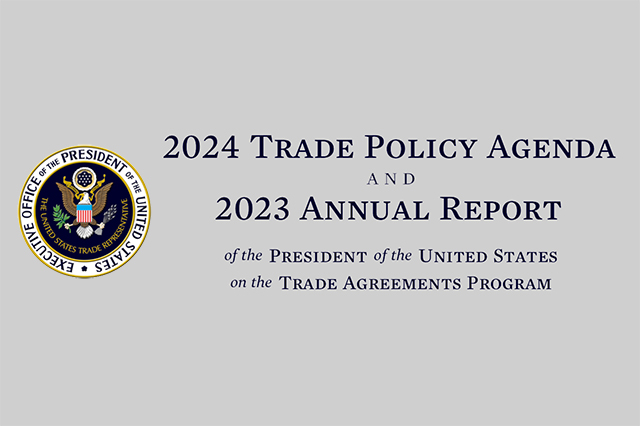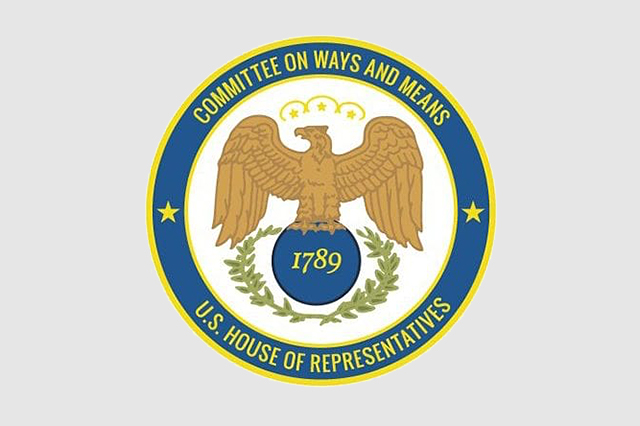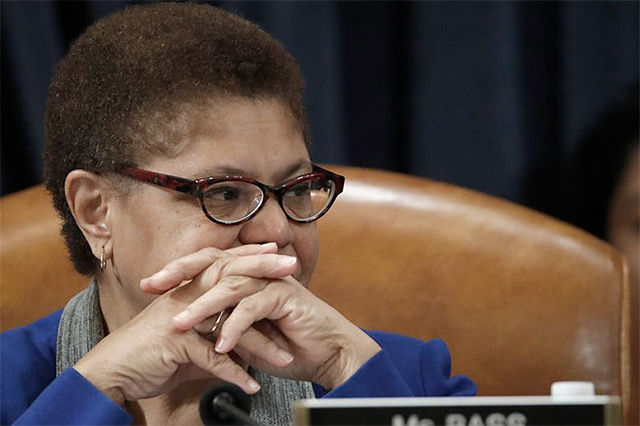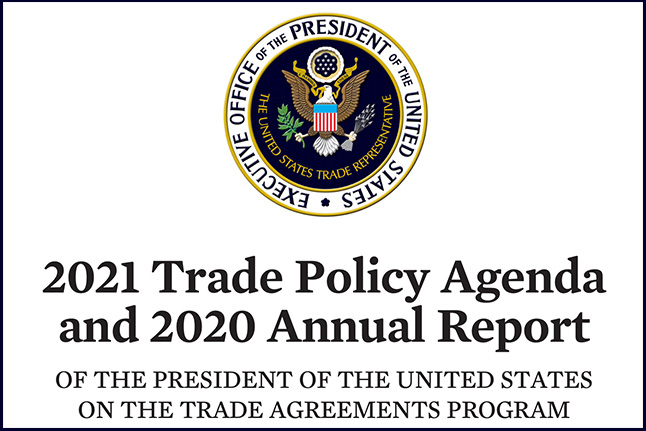How the United States can help shape Africa’s future
The Department of State’s Bureau of Africa Affairs provides three core objectives for U.S. foreign policy towards Africa:
“1) Advancing trade and commercial ties with key African states to increase the U.S. and African prosperity;
2) Protecting the United States from cross-border health and security threats; and
3) Supporting key African states’ progress toward stability, citizen-responsive governance, and self-reliance.”
Examining these objectives and their on-the-ground impacts, separating health and security threats, creates four unique strategic priorities. Although examined individually, it is vital to remember that the objectives are highly interdependent—promoting African economics, health, security, and governance requires solutions that affect change across multiple categories.
According to the International Monetary Fund, five of the ten fastest-growing countries in 2019 were in Africa. Africa remains one of the most promising trade destinations thanks to its vast untapped market and a young population that is expected to reach more than two billion by 2050. In the competition for business opportunities in the African market, the United States is at a disadvantage against its main competitors: the European Union and China.
U.S. economic policy toward Africa has two main objectives. First, the United States wants to provide markets for the products and services of U.S. companies, and second, to support the economic development of African countries. Trade is also a lever used by the United States to promote democratic practices, a market economy, and respect for human rights on the continent.
The African Growth and Opportunity Act (AGOA) is a prominent U.S. Government initiative to achieve the stated goals. Others include Prosper Africa, Power Africa, and, most recently, the Build Back a Better World (B3W) initiative.
Launched in the early 2000s by the Clinton administration and expanded several times since then, AGOA is the main tool for U.S. trade with Sub-Saharan Africa. The program aims to provide access to the U.S. market for more than 6,000 products from eligible countries on the continent and to expand U.S. exports to Africa. Through this mechanism, exports from African countries to the United States rose from $28 billion in 2001 to more than $100 billion in 2008, before falling back to $37 billion in 2019 following the decrease in U.S. imports of petroleum products.
South Africa and Kenya are the two countries that export the most non-oil products to the United States under this scheme. In Kenya, for instance, the volume of exports to the United States has increased fourfold between 2000 and 2016 leading to an exponential growth in the textile and apparel sector in the country.
On the other hand, Prosper Africa is a U.S. government initiative to promote capital investment in Africa and the United States. Seventeen departments and agencies, including the U.S. Agency for International Development (USAID), engage in this program, which facilitates access to the African market for American investors and vice versa. In 2018 for instance, Prosper Africa helped a U.S.-based company (Red River Foods) invest more than three million dollars in the production of cashew nuts in West Africa and create, in the process, nearly 500 permanent jobs in a processing plant in Côte d’Ivoire and revenues for 11,000 farmers.
Moreover, to assist Sub-Saharan African countries, and address the low rate of access to electricity, the United States launched the Power Africa initiative in 2013 to create the conditions for the generation of 30,000 megawatts of renewable energy on the continent by 2030. According to USAID, the program has facilitated access to electricity for more than 127 million people since its inception.
Desert to Power is one project supported by the initiative to generate 10 Gigawatts of solar energy for the region. To be more specific, the Biden administration has started the implementation of the project in Africa in 2021.
Build Back a Better World (B3W) is a program launched at the G7 summit in June 2021 by President Joe Biden to help developing countries build quality infrastructure in four priority areas: health, technology, climate, and gender equality.
The plan, supported by G7 countries, aims to mobilize $40 trillion in private capital which many see as a response to China’s Belt and Road strategy. In North Africa, Egypt is the United States’ largest trading partner while Morocco and the United States signed a free trade agreement in 2004.
Public Health
Health spending constitutes the second-largest category of U.S. foreign assistance to Africa. In the last twenty years, the United States has invested over $100 billion in public health across the African continent. Annually, this includes over $900 million earmarked to strengthen the capacity of health systems and support over 3,000 national and trans-national research laboratories.
Promoting public health advancement in Africa is vital to securing the United States against cross-border health threats and serves a significant role in promoting liberal institutions and democratic sympathies within Africa.
Given the disruptive effects of public health disasters on security, the economy, and governance, the Bush administration received approval for massive resources directed at promoting Africa’s health sector. Initial appropriations funded U.S. contributions to the Global Fund to Fight AIDS, Tuberculosis, and Malaria. The United States remains the largest single donor to the Global Fund, providing $21 billion in total funds between 2001 and 2021.
In 2003, the Bush administration introduced the President’s Emergency Plan for AIDS Relief (PEPFAR), which promised to deliver $15 billion in its first five years. In 2021 alone, U.S. funding for the program totaled $10.8 billion. PEPFAR’s work extends beyond traditional vaccine delivery or disease education programs. In its 2021 Program Results report, PEPFAR had trained 290,000 new health care workers, provided antiretroviral treatments to 17.2 million people, providing critical care support to 6.7 million individuals in vulnerable populations, and much more.
Despite serving over fifty countries around the world, the majority of PEPFAR’s funding and staff are concentrated in sub-Saharan Africa, where 69 percent of the world’s 34 million HIV-positive individuals reside. PEPFAR remains the largest commitment ever, by any nation, to address a single disease.
The Covid-19 pandemic posed a significant challenge to public health in Africa, much as it did globally. The inequities that make Africa uniquely vulnerable to other health disasters—resource disparities, inadequate funding, and insufficient infrastructure—have kept it firmly in the grip of the pandemic, even while many portions of the world begin to reopen. Infection rates remain high, and vaccination rates remain low. Covid-19 transmission within Africa has the potential to create global health crises.
This was evident in November 2021, when the Omicron variant, first detected in South Africa, quickly spread to account for most new U.S. Covid-19 cases. Biden responded by restricting travel from eight countries in sub-Saharan Africa, a move criticized for damaging their vulnerable economies and “punishing” countries for effectively reporting variants. Sub-Saharan Africa currently receives the largest portion of U.S. Covid-19 funding regionally, accounting for over a third of USAID’s $3.6 billion in pandemic aid funding.
In addition to preventing global health threats that might cross Africa’s borders, the policies that support U.S. public health funding in Africa increasingly address the threat posed by China. In 2020, China ranked among the top ten bilateral donors for health aid in Africa, a steep climb from the early 2000s.
Chinese influence in Africa appears currently focused on infrastructure development, resource extraction, public health, and manufacturing–sectors where China has previously used foreign aid as a political tool. Though present “no strings attached” Chinese aid policies in Africa do not inherently undermine U.S. goals, they risk giving China a stronger foothold in crucial emerging economies and could significantly extend the Chinese sphere of influence.
Security & Stability
Although Africa is home to thirteen of the world’s twenty-five fastest-growing economies, African nations still face security and humanitarian challenges from extremist groups, climate change, food shortages, and disease threats. U.S. Africa Command (AFRICOM) is partnering with African nations to address these challenges. AFRICOM helps African nations counter security threats and respond to humanitarian crises, including the Covid-19 pandemic. AFRICOM is one of eleven U.S. Defense Department combatant commands worldwide that coordinate U.S. military forces during peace and war.
U.S. foreign policy on peace and security engagement in Africa includes five strategic priorities: training on land and sea, supporting disaster relief, combating illegal immigration, supporting the Nigerian Air Force, and fighting terrorism in Africa. African nations face threats from multiple terrorist groups, including Al Qaeda and ISIS affiliates in the Sahel and East Africa. U.S. forces, working together with the U.S. Department of State, join African partners in training on land and sea to counter these and other threats.
AFRICOM also supports USAID, the lead U.S. agency for foreign disaster relief, using military capabilities to help deliver assistance to most in need Africans. In 2021, AFRICOM led U.S. forces and those from thirteen partner nations in Exercise Phoenix Express to promote safety and security in the Mediterranean Sea and North African territorial water.
Super Tucanos aircraft are available to assist the Nigerian Air Force in its fight against violent extremist organizations including the Islamic State West Africa Province. A total of sixty-four pilots and maintainers from the Nigerian Air Force trained to U.S. standards with the U.S. Air Force’s 81st Fighter Squadron at Moody Air Base in Georgia, United States. The United States and African nations are also boosting defenses against terrorist groups and strengthening partnerships to improve security and expand development.
Africa faces threats to peace, security, and terrorist activity in the Democratic Republic of Congo (DRC) and G5 Sahel countries, as well as humanitarian crises such as the case of internally displaced people, and the refugee crisis in the DRC, Somalia, Central African Republic, and South Sudan. Other challenges that African countries experience include illegal immigration; political upheaval before, during, and after electoral processes; corruption; high rates of illiteracy; unemployment; and poor management.
Promoting Good Governance & Democracy
For decades, the United States has been interested in assisting democratic transitions throughout the African continent. Sixteen African nations already have free-market economies and free elections, but the constant flux and threat of upheaval in some of them, as well as instability in neighboring countries, means the United States should not become complacent in its commitment. In November 2021, Secretary of State Antony Blinken, in remarks to the Economic Community of West African States, or ECOWAS, said that “we see across Africa a microcosm of what democracies can achieve—as well as the challenges that they must overcome” and emphasized three things in U.S. policy that align with this: using technologies to strengthen democracies, implementing policies to enforce fair and honest election processes, and holding leaders accountable.
In remarks at Howard University last year, Assistant Secretary of the Bureau of African Affairs Molly Phee said that partnering with African governments and society to promote good governance is one step in addressing the root causes of conflict, namely marginalization, exclusion, and lack of economic opportunity especially for youth, women, and minority populations.
Corruption is also a major issue and hindrance to democracy. Phee stated that citizens’ trust in government is “eroded when leaders misappropriate public assets, engage in bribery, or undermine the rule of law,” which is the main idea behind anti-corruption measures that the United States is working to promote. The success of most initiatives in Africa hinges on democracy; without a solid foundation of democratic principles, governments cannot “unlock potential and prosperity for their citizens.”
There seems to be broad support for democratic governance among African populations. A 2019 survey by Afrobarometer found that, across thirty-four countries, 68 percent of citizens prefer democracy. However, only 43 percent are satisfied with the way democracy works in their country, meaning they do not experience what Afrobarometer calls an “adequate supply of democracy.” Thus, there is still room to grow and much space for the United States to become or remain involved. To maintain this prominent level of support, the United States must continue to listen to African civil society and reputable leaders to positively contribute to emerging democracies, rather than simply planting U.S.-specific seeds of democracy regardless of their efficacy.
Two specific initiatives exemplify tangible U.S. efforts to support good governance. The Young African Leaders Initiative was set up to assist young professionals to “spur growth and prosperity, strengthen democratic governance, and enhance peace and security.” The flagship program, the Mandela Washington Fellowship, has allowed over 5,000 African leaders between the ages of twenty-five and thirty-five to attend college in the United States and be provided with professional development support when they return home.
Additionally, Biden will host the second U.S.-Africa Leaders’ Summit in 2022 to maintain and strengthen ties between the countries and promote active listening and collaboration.
Despite this support, upholding new democratic institutions is not easy. In Sudan, for instance, the military recently upset the government’s transition to democracy, and the United States has been perceived as being too soft on anti-democratic sentiment in the country despite clear civilian disapproval of the military takeover. Failing to support fledgling democracies could result in the United States undermining its position as a legitimate partner in critical issues of governance.
Moving forward, the United States should:
- Work to promote national cohesion and unity in African countries to fight anti-democratic sentiment, corruption, and youth unemployment, among other issues.
- Create sustainable healthcare infrastructure by prioritizing the training of African health workers.
- Support and encourage the education system, especially in the northern regions. Educational support will allow the United States. to strengthen partnerships with major African countries, making it easier to promote good governance, leadership, and management skills for a new generation of African leaders.
- Deal with the deadliest non-state armed groups in Africa, such as the Lord Resistance Army in Uganda and Boko Haram in Nigeria, to ensure African security.
- U.S. foreign policy in Africa spans an incredibly wide range of sectors. The United States must continue to deepen and strengthen its connections, relationships, and commitments to the people and governments of Africa not only to further the interests of Africa and the United States but of the global population. Blinken captured this idea in his ECOWAS speech, declaring that the United States cannot expect to advance any of its global foreign policy interests without the support and partnership of African leaders and populations. He stated that “Africa will shape the future—and not just the future of the people of Africa, but the world,” and the United States should continue to aim toward collaboration and cooperation to help shape that future as well.
Dr. Dramane Chabi Bouko is a lecturer in international relations, peace, security, and geopolitical studies with a specific focus on Africa and China at the University of Parakou, Benin, and a Humphrey Fellow at the Maxwell School at Syracuse University.


